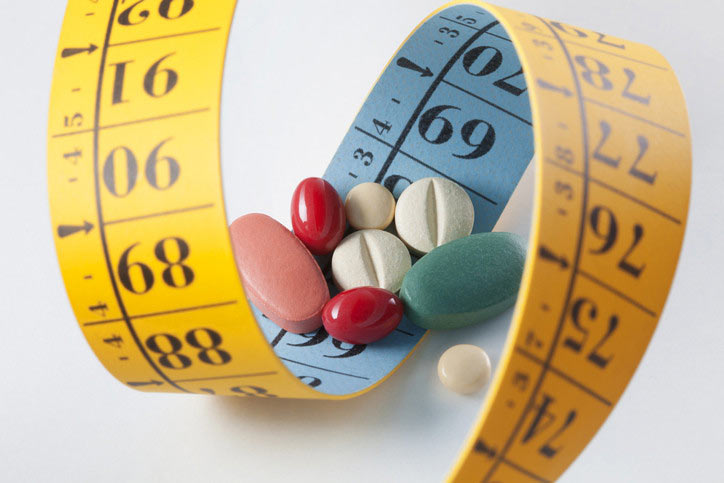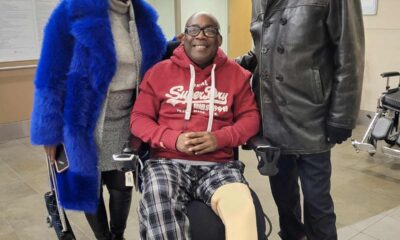Health & Wellness
Managing Diabetes: It’s Not Just Sugar!

Jerimiah C. wanted to remain anonymous so as to protect his mother’s identity and her privacy. But after last week’s Our Time Press articles on diabetes, he contacted the paper to say, “My Mama is a diabetic, and we have to carefully watch her blood sugar levels every day. She is in her eighties. We cook specific food for her to make sure that sticks to what the doctors suggest. But, for quite a while, there has been a shortage of her usual injectable diabetic drug. So now we have to get her a weaker version of her diabetes medicine. We have people using a drug meant for a crucial condition – to lose weight. I am not knocking them, but those who make the medication should do something about this.”
By Nayaba Arinde
Editor-at-Large
Despite popular belief, sugar is not the only culprit in the rampant diabetes wave raging through the Black community.
“Diabetes can occur due to an overconsumption of starchy vegetables, deep-fried foods, alcohol, bread and bagels, specialty coffee drinks, fruit juice, and soda,” Weill Cornell RN Oasia Holback told Our Time Press. “Diabetes isn’t only an issue for the old or overweight; anyone can develop this incurable condition. Mismanagement of the disease can lead to vision-altering eye damage, slow wound healing, heart disease, stroke, nerve damage which can lead to unintentional burns or the loss of toes or feet as well as an increased risk of developing Alzheimer’s disease.”
The American Journal of Public Health has reported that “African American adults are 50% to 100% more likely to have diabetes than are whites.”
“It is dire, but preventable if we simply pay serious attention, “ the decades-long healthcare worker Enid Knight insisted.

The Diabetes and Chronic Pain Manager at the Brooklyn Plaza Medical Center in Fort Greene told Our Time Press, “We are more likely to get diagnosed with diabetes. We have to manage our health. Advocate for ourselves, so that we can monitor our health. We don’t want to be hit with any unhealthy surprises. If you don’t know, there is no prevention. And then we get end-stage renal disease and lower-extremities amputations. Why? You need to know where you are, to know where you need to be, to work on the outcome.”
And now there is yet another issue. Everydayhealth.com wrote, “It might be hard to imagine a diabetes drug trending on social media, but that’s exactly what’s happening with semaglutide (Ozempic), a drug used to treat type 2 diabetes, as word spreads about one of its side effects: weight loss.”
Some celebrities who have been known for years to speak about their weight suddenly appear a tad bit thin, some even gaunt. Others are complaining that they now cannot stop losing weight. With millions responding to Ozempic hashtags, media headlines ramping up the conversation interest is growing.
The U.S. Food and Drug Administration (FDA) said that due to the demand increase for the drug Wegovy, Injection, .25 mg/.5 mL, there is limited availability. With “estimated shortage duration TBD.”
The Daily is Case Western Reserve University’s internal e-newsletter wrote a piece on the “diabetes drug Ozempic and the weight-management drug Wegovy.”
The article explained that “Semaglutide is a chemical of the glucagon-like peptide receptor (GLP1R) that helps regulate blood sugar in type 2 diabetes and reduces appetite.”
Jerimiah C. wanted to remain anonymous so as to both protect his mother’s identity and her privacy. But after last week’s Our Time Press articles on diabetes, he contacted the paper to say, “My Mama is a diabetic, and we have to carefully watch her blood sugar levels every day. She is in her eighties. We cook specific food for her to make sure that sticks to what the doctors suggest. But, for quite a while there has been a shortage of her usual injectable diabetic drug. So now we have to get her a weaker version of her diabetes medicine. We have people using a drug meant for a crucial condition – to lose weight. I am not knocking them, but those who make the medication should do something about this.”
Everydayhealth.com quoted Dr. Beverly Tchang: “I worry more that people who do not have obesity or diabetes are buying semaglutide at its out-of-pocket cost to get skinnier,” Dr. Tchang, is an endocrinologist and assistant professor of clinical medicine at Weill Cornell Medicine and New York Presbyterian Hospital. “Patients with diabetes and patients with obesity both deserve treatment, and the shortage of semaglutide in general affects both populations.”
Reportedly, Ozempic is cheaper, and may even be covered by insurance. Whereas Wegovy can run as much as $1,500 for a 30-day supply.
A 2021 New England Journal of Medicine clinical trial published monitored 2,000 non-type 2 diabetic adults with obesity for over five years. Asked to choose improved lifestyle changes with regards to food and exercise, two-thirds were given a weekly semaglutide injection, while the other one-third were given a placebo injection.
Everydayhealth.com reported that at trial end, “people on semaglutide lost about 15 percent of their body weight on average — compared with about 2.4 percent for the placebo group.”
Everydayhealth.com cited, “Now there’s a shortage of Ozempic, as well as its obesity treatment counterpart Wegovy (both are the generic semaglutide), according to the FDA. People have also had challenges getting Mounjaro (tirzepatide) for type 2 diabetes. Manufacturer Lilly has worked to increase production. The recent approval of tirzepatide for weight loss (sold under the name Zepbound) has people with diabetes nervous about shortages of tirzepatide.”
Diabetes Daily wrote a piece in November last year saying, “For most of 2023, Mounjaro users with type 2 have had to navigate around frustrating shortages, largely provoked by demand for the drug from people without diabetes.”
The National Institutes of Health says that diabetes occurs when blood glucose – blood sugar– is too high. Insulin, a hormone made by the pancreas, helps glucose get into your cells to be used for energy. In type 2 diabetes, the body does not make enough insulin or does not use insulin well. Over time, too much glucose in the blood can cause health problems, such as heart disease, nerve damage, eye problems, and kidney disease. Type 2 diabetes occurs most often – but not exclusively, in people 45 or older, have a family of diabetes, or are overweight or obese. In the U.S., Black adults are nearly twice as likely as white adults to develop type 2 diabetes. This racial disparity has been rising over the last 30 years.
The American Diabetes Association (ADA) reported that there are several Social Determinants of Health and Diabetes, saying that “diabetes affects racial and ethnic minority and low-income adult populations in the U.S. disproportionately.”
There is help. One Brooklyn Health Diabetes Center of Excellence at the Pierre Toussaint Health, has an interdisciplinary team made up of a Board-certified endocrinologist, a Diabetes Care and Education Specialist (DCES) registered nurse, a nurse practitioner dedicated to the care of diabetes and metabolic disease, Doctor of Pharmacy for medication management, and Health Coaches.
Brookdale Hospital Medical Center’s Diabetes Care and Treatment at the Medication Management Clinic, has experienced PharmDs and primary care providers, and their Diabetes Self-Management Program and a Diabetes Prevention Program.
In addition, Interfaith Medical Center’s Bishop Walker Health Center also offers Diabetes Self-Management Group Programs, a Medication Management Clinic, and treatment services.
The Flatbush Avenue-based CAMBA non-profit resource agency says that their Brooklyn Drive Down Diabetes program “addresses the widespread prevalence of diabetes and pre-diabetes in low-income…neighborhoods [with] large African-American, Afro-Caribbean, and Latino/a populations, with disproportionately high rates of diabetes-related morbidity and mortality.”
Ms. Knight advised anyone with diabetes to “Check your AIC regularly, and know your numbers for your blood sugar, over 9 is real critical. It can impact your heart, your kidneys, your eyesight, your lower extremities. Neuropathy – you wouldn’t wish it on your worst enemy… that chronic pain might make you not want to comply altogether. Then the depression gets in…It is preventable and manageable. We’ve got to show up when we get the information.”
The CDC says that as well as a person having to manage their food intake and engage in more exercise, they advised that, folks diagnosed with the illness also need to ensure that they maintain contact with a “primary care doctor, foot doctor, dentist, eye doctor, registered dietitian nutritionist, diabetes educator, and pharmacist, family, and other important people in your life.”
“It’s never too late to adjust your mind to a healthier way of thinking and your body to a healthier and more vibrant way of living,” health and fitness advocate Divine Allah told Our Time Press. The Trenton-based ‘Wellness OG’ and founder of Mind Body Activism continued, “There Is no drug – no matter how popular – that can do what a natural and holistic way of living can do for your mind or your body. Mental and physical fitness should be a daily standard for a better quality of life for our people.”













